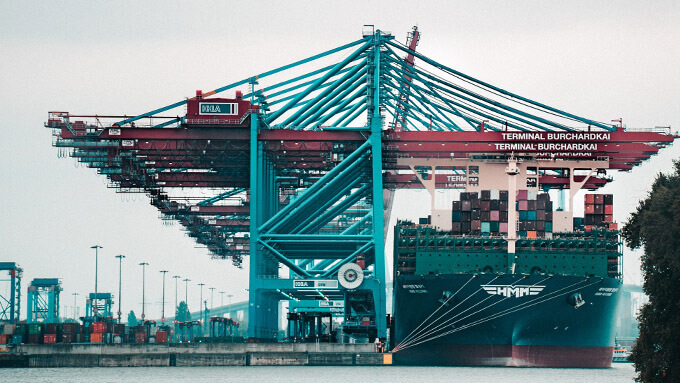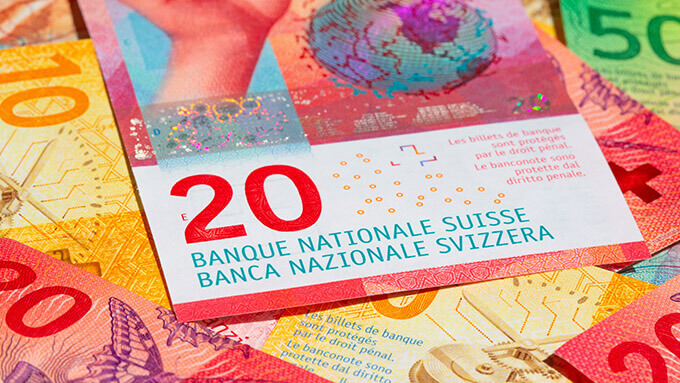European Union Foreign Subsidies Regulation
Introduction
The European Union continues to be an important investment center for foreign investors. According to data from the European Commission's "Second Annual Report on the monitoring of foreign direct investment in the European Union", the European Union received €117 billion worth of foreign direct investment in 2021. Compared to 2020, the number of acquisitions in the European Union increased by 32% and the number of greenfield investments by 12%. In 2021, 32.3% of acquisitions were from the United States and 25.6% from the United Kingdom, while 39.4% of greenfield investments were from the United States and 20.9% from the United Kingdom.[1]
The European Union imposes strict rules on financial aids from member states to undertakings. Member states have to notify the European Commission about the state aid they receive, and the European Commission has the power to prohibit such state aid. However, these rules on state aid from member states do not apply to financial aids from third countries. Whereas, just like financial aids from member states, financial aids from third countries also carry the risk of distorting competition in the internal market of the European Union. Moreover, while undertakings receiving financial assistance from Member States of the European Union are subject to strict scrutiny, undertakings receiving financial assistance from outside the European Union are not subject to similar scrutiny, which creates inequality among these undertakings. The Foreign Subsidies Regulation, which was prepared by the European Commission in order to ensure a favorable competitive environment in the internal market of the European Union and to eliminate the legislative gap on foreign subsidies, was published in the Official Journal of the European Union on December 22, 2022 and entered into force on January 12, 2023. The Foreign Subsidies Regulation will be implemented as of July 2023. On the other hand, the draft regulation on the implementation of the Foreign Subsidies Regulation was opened for consultation on February 6, 2023, but has not yet entered into force.[2]
The Foreign Subsidies Regulation aims to identify and remedy potential distortions in the internal market of the European Union caused by financial aids provided by foreign countries to undertakings operating in the European Union.
Foreign Subsidies
For the purposes of the Foreign Subsidies Regulation, foreign subsidy means any financial contribution that (i) is provided directly or indirectly by a third country that is not a Member State of the European Union, (ii) provides benefits and (iii) is limited to one or more undertakings or industries.
Financial Contribution
Pursuant to Article 3 of the Foreign Subsidies Regulation Financial contribution involves;
- “capital injections, grants, loans, loan guarantees, financial incentives, the setting off of operating losses, compensation of financial burdens imposed by public authorities, debt forgiveness, debt to equity swaps or rescheduling,
- the foregoing of revenues that would otherwise be due, such as tax exemptions or the granting of special or exclusive rights without adequate remuneration; or
- the provision of goods or services or purchase of goods or services.”[3]
Those Who Contribute Financial Contribution
Financial contributions from third countries and their public authorities at all levels are covered by the Foreign Subsidies Regulation, as well as financial contributions from foreign public and private entities whose activities are attributable to third countries.
Financial Contribution Providing Benefits
Under the Foreign Subsidies Regulation, only financial contributions that provide a benefit that cannot be obtained under normal market conditions are taken into account. The existence of the benefit is determined in the light of comparative criteria, such as the investment practices, market-available financing rates, comparable tax treatment or the reasonable price to be paid for a particular good or service.
In addition, the preamble to the Foreign Subsidies Regulation states that foreign support should be considered granted from the moment of entitlement to receive foreign subsidy and that actual payment is not a necessary condition.
Distortion in the Internal Market
The assessment of whether foreign subsidies distort competition in the internal market of the European Union is based on the amount and nature of the foreign subsidy, its size in absolute terms or in comparison with the size of the market or the value of the investment; the characteristics of the relevant market and sector, such as the size of the undertaking and barriers to entry; the level and development of the economic activity of the undertaking in the internal market; the purpose of the foreign subsidy and its use in the internal market. For example, foreign subsidies that cover a significant portion of the price of the target company in an acquisition transaction or a significant portion of the contract price in a public tender may be considered to distort competition in the internal market. According to another example from the Foreign Subsidies Regulation, foreign subsidies provided for operating costs rather than investment costs may be more likely to distort competition.
The Foreign Subsidies Regulation provides that guarantees with no limits in terms of quantity or duration, unfair advantageous tenders, export financing are largely deemed to be anti-competitive and that the European Commission does not need to carry out a detailed examination of these issues.
If the European Commission considers that the foreign subsidy distorts competition in the internal market, it will compare the negative effects of the foreign subsidy on competition with the positive effects of the subsidy on the development of the economic activity in the internal market. Accordingly, if the European Commission finds that the negative effects outweigh the positive effects, it may impose certain measures.
Powers of the European Commission under the Foreign Subsidies Regulation
In order to monitor the effects of foreign subsidies on the internal market, the Foreign Subsidies Regulation gives the European Commission three important powers: acceptance of notifications for concentrations and for public procurements, ex officio investigations.
Notifications for Concentrations and for Public Procurements
Turnover and financial contribution thresholds are envisaged for notifications made in respect of concentrations. In a merger and acquisition transaction, notification shall be made if (i) one of the merging parties or the target company or joint venture is established in the European Union and its annual turnover within the European Union is higher than EUR 500 million, (ii) the total financial contribution received in the three years preceding the notification is higher than EUR 50 million. However, the European Commission may decide that notification is also required for concentrations that do not meet these thresholds.
Similarly, contract value and financial contribution thresholds are set for notifications for public procurement. For public procurement taking place within the European Union, a notification to the European Commission is required if (i) the estimated value of the public procurement or framework contract is EUR 250 million or more, (ii) the financial contributions provided to the economic entity (including its subsidiaries, group companies, key subcontractors and suppliers involved in the public procurement) in the last three years are EUR 4 million or more per third country.
The provisions of the Foreign Subsidies Regulation imposing notification obligations for concentrations and public procurement apply from October 12, 2023.
Ex Officio Investigation
The European Commission may request notification of certain concentrations and public procurements for which foreign contribution is provided, even if they fall below the notification thresholds.
Review Procedures and Possible Decisions by the European Commission
The review by the European Commission consists of two stages. The procedure for foreign subsidy notifications is similar to the procedure for merger notifications. In the case of concentrations, a preliminary review of twenty-five working days is followed by an investigation of ninety working days; in the case of public procurement, a preliminary review of twenty working days is followed by an investigation of one hundred and ten working days.
At the end of its investigation, the European Commission may prohibit the award of the concentration or public contract and may decide to impose measures or commitments.
Conclusion
The Foreign Subsidies Regulation introduces important notification obligations for companies engaging in mergers and acquisitions in the European Union or participating in public procurement within the European Union. Given that the European Commission's review will also take past foreign subsidies into account, companies should review foreign subsidies received in the past before commencing a notifiable transaction.
- “Second Annual Report on the screening of foreign direct Investments into the Union” (https://eur-lex.europa.eu/legal-content/EN/TXT/PDF/?uri=CELEX:52022DC0433, Access Date: 25.02.2023.)
- Draft Implementing Regulation (https://ec.europa.eu/info/law/better-regulation/have-your-say/initiatives/13602-Distortive-foreign-subsidies-procedural-rules-for-assessing-them_en, Access Date: 25.02.2023.)
- “Regulation (EU) 2022/2560 of the European Parliament and of the Council of 14 December 2022 on foreign subsidies distorting the internal market” (https://eur-lex.europa.eu/legal-content/EN/TXT/?uri=CELEX:32022R2560&qid=1673254237527, Access Date: 25.02.2023.)
All rights of this article are reserved. This article may not be used, reproduced, copied, published, distributed, or otherwise disseminated without quotation or Erdem & Erdem Law Firm's written consent. Any content created without citing the resource or Erdem & Erdem Law Firm’s written consent is regularly tracked, and legal action will be taken in case of violation.
Other Contents

This legal post examines the decision of the 11th Civil Chamber of the Court of Cassation numbered E.2024/1865, K.2025/478 (“Decision”). The Decision is significant in terms of the rejection of transfers of registered shares in joint stock companies by the board of directors, the legal validity of such rejection…

Capital increase in privately held joint stock companies is an important transaction that allows the company to grow and meet its financing needs by strengthening its equity structure. A capital increase means an increase in the amount of the company's ordinary/registered capital and is realized with the...

Article 408, paragraph 2, subparagraph (f) of the Turkish Commercial Code No. 6102 ("TCC") lists the "wholesale of a significant amount of company assets" among the unassignable and exclusive duties and powers of the general assembly. However, this provision does not clearly regulate what is meant by the...

To ensure economic stability in Turkiye and preservere the value of the Turkish Lira, an amendment was introduced to Decree No. 32 on the Protection of the Value of the Turkish Currency through Presidential Decree No. 85, published in the Official Gazette No. 30534, dated September 13, 2018. This regulation...

In the rapidly digitalizing world, e-commerce is spreading rapidly, strengthening the impact of sales made via the Internet and traditional channels. According to the Ministry of Trade data for 2023, Türkiye's e-commerce volume increased by 115.15% compared to the previous year, reaching 1.85 trillion Turkish liras...

In an extraordinary dissolution, ex officio cancellation from the trade registry without liquidation is regulated under the provisional Article 7 of the Turkish Commercial Code No. 6102 (“TCC”). Under Paragraph 15 of the relevant provision, the creditors of the company or cooperative, which was ex officio canceled...

As the global business landscape evolves, foreign companies increasingly seek to expand their presence in promising markets. Türkiye, positioned between Europe and Asia, offers suitable opportunities for this expansion. Among the methods foreign companies use to establish a foothold but not a company in...

In joint stock companies, the body in charge of managing and representing the company is the board of directors. The members of the board of directors are liable to the company for the damages caused by their negligence in the performance of their duties...

Sales contracts are the most common and most important contracts of commercial life . Determining the rights and obligations of the parties as a result of the defects encountered in the goods subject to the sale is one of the most common legal problems in commercial sales...

Under Article 365 of the Turkish Commercial Code No. 6102 ("TCC"), each member of the board of directors, which is the body responsible for the administration and representation of a joint stock company, is obliged to fulfill their duties arising from the law and the articles of association within the limits...

Law No. 7262 dated 27.12.2020 introduced an obligation to notify the Central Registry Agency (“CRA”) regarding the issuance and transfer of bearer shares under the Turkish Commercial Code No. 6102 (“TCC”) and stipulates that those who violate the notification requirement under Art. 486/2 of the TCC shall be...

Similar to previous years, in 2024, mergers and acquisitions (“M&A”) transactions continue to be shaped by global economic dynamics, geopolitical risks and technological innovations...

The common goal (in the ideal world) of people who become shareholders by participating in the capital of a company or managers by participating in the management body is to manage the company in the best way and to obtain maximum economic benefit...

The most common forms of agency agreements can be categorized under three main headings. These can be listed as an Agency Agreement, Distributorship Agreement, and Franchise Agreement...

Employee shareholding, which means the ownership of some or all of the capital of a publicly traded or closed company by employees, has attracted great interest in many countries around the world, particularly in the United States of America, due to the advantages it provides to the national economy, the...

There are many different rules that newly established companies must consider and comply with when starting their commercial activities. One of these rules is the "Evasion of Law" article regulated under Article 356 of the Turkish Commercial Code No. 6102 ("TCC"). The relevant rule aims to prevent the...

The Turkish automobile and light commercial vehicle market left the 2000s behind with steadily rising sales figures and the 2010s with high and stable sales figures as well. In this period, the growth of the market was driven not only by high purchase power but also by easy access to credit and product diversity...

Turkish Commercial Code No. 6102 ("TCC") provides the right to exit from the company to the shareholders of limited liability companies and the right to squeeze out the shareholder from the company, unlike the structure of joint stock companies, with the exit and squeeze out institutions specially regulated for...

Turkish Commercial Code No. 6102 (“TCC”) preserves the rule that the board of directors shall manage and represent joint stock companies. The TCC regulates how the power of representation shall be exercised, the registration and announcement of the persons authorized to represent, the transfer of the...

Merger and acquisition processes are one of the legal processes that most seriously affect the identities and legal status of companies. After the completion of legal, tax, financial and operational due diligence reports, the parties initiate the negotiation process in case they reach an agreement on proceeding with the...

A popular business model for expanding market reach and brand recognition worldwide is franchising. Despite being less common than distribution agreements in the form of mono-brand store agreements, franchising is another significant method for extending luxury brands' distribution networks. Luxury brands use...

In the decision dated 14.06.2022 and numbered 2019/149 E. 2022/894 K., the Court of Cassation General Assembly (“CCGA”) evaluated the theory of piercing the corporate veil in the context of the relationship between the guarantor and the borrowing company in a dispute arising from a loan agreement...

Transfer of shares is arguably the first legal transaction that comes to mind among the legal transactions regarding the shares of a capital company, and the most common transaction in practice. However, the shares of a capital company may also be subject to various transactions, other than share purchase...

Law No. 6563 on the Regulation of Electronic Commerce (E-commerce Law or Law) has recently undergone a radical change in order to regulate the behavior of the players in the rapidly growing and developing e-commerce sector. The new regulations that came into force as of January 1, 2023 envisage important...

On 11 June 2021, the German Federal Parliament approved the German Supply Chain Due Diligence Act (Lieferkettensorgfaltsgesetz) (“Act”) which affects not only German entities but also their suppliers in foreign countries (including Turkish entities). The main focus of the Act, which entered into force on...

On 21 December 2007, the Federal Council approved the draft revision of the Swiss Code of Obligations, which also includes amendments to company law. On 28 November 2014, the Federal Council referred the draft revision for consultation. Following extensive discussions and a long enactment process, the...

The Turkish Commercial Code No. 6102 ("TCC") regulates maritime trade contracts under the fourth part of the fifth book of the Code. Among the types of contracts regulated in this section, the most frequently used contract in international maritime transport practice is the freight contract regulated under...

Prohibition on hidden income shifting is one of the most important issues that is broadly regulated under Capital Markets Law No. 6362 (“CML”). In conjunction with CML Article 21, which has a broader context than Article 15 of the abrogated Capital Markets Law No. 2499, another significant step has been taken...

As a result of developing commercial activities and large-scale investments, especially concluded in the fields of construction, energy and mining, companies are seeking to participate in these investments by uniting their powers and expertise to take advantage of financial opportunities together. This tendency...

The Turkish Commercial Code (“TCC” or “Law”) has enabled companies to apply different structural models and to implement new legal formations by including spin-off provisions to its Article 159 et seq. In accordance with the provisions of the law, companies may transfer a certain element, or elements, of their...

The International Federation of Consulting Engineers is a professional association established in 1913, known as the FIDIC (Fédération Internationale Des Ingénieurs-Counseils). Its members are duly elected from consultant-engineer associations of various countries, and membership to the association is...


Incoterms are a set of rules introduced by the International Chamber of Commerce (ICC) to explain the commercial terms that are widely used in international trade. The purpose of Incoterms rules is to facilitate and expedite international trade in a safe and secure manner...

The regulation applicable to all Turkish ports prepared by the Ministry of Transport, Maritime Affairs and Communications that entered into force after being published in the official gazette on October 31, 2012 (˝the Regulation˝), consolidates all the bylaws, regulations and instructions in a single Regulation...

As a rule, rights and obligations arising from an agreement have legal consequences only between the creditor and the debtor which are parties to the agreement. This principle is referred to as "privity of contract." In general, contracts for the benefit of third parties, where the fulfillment of an...

The rules of e-commerce, which grow and develop with the digitalizing world, are changing. E-commerce has become the driving force of the digital economy. However, considering the growth rate of e-commerce and the transformation it has undergone in a short time, it is obvious that some...

The dissolution of a company is a specific type of dissolution, which results in the cancellation of the legal personality which was gained by registration at incorporation. The specific proceeding which leads to the dissolution, and thus, the termination of a company upon the constitutive decision...

Companies in which shares or authority to manage is held by members of a family are considered to be “family businesses”. Family members can hold shares that control the company, as well as retain management authority. Having a family business means opportunity, security and income for...

Turkey ratified the Convention on the Contract for International Carriage of Goods by Road (“CMR”) in accordance with Act No. 3939 dated 7 December 1993, and the CMR entered into force in Turkey on 31 October 1995. In accordance with Article 1 / 1 of the CMR, the carriage of goods by road...

Ordinary partnerships are governed by Article 620 et seq. of the Turkish Code of Obligations No. 6098 (“TCO”). An ordinary partnership agreement is defined as an agreement whereby two or more persons undertake to join efforts and/or goods to reach a common goal...


The concept of disguised profit transfer in joint stock companies, in its broadest meaning, covers the transfer of company assets to related parties and may occur in different ways. This concept is regulated in detail under capital markets legislation...

Share subscription agreements, which are commonly encountered in start-up investments, set out the terms and conditions of an investor’s participation in a company as a shareholder by subscribing the new shares issued in a capital increase...

The electronic signature, which has the same legal consequences as wet signatures if it meets certain conditions, has taken its place in many legal systems and has enhanced commercial life. Although there are various types and applications in different legal systems...






























INCOTERMS are a set of rules introduced by the International Chamber of Commerce (ICC) to explain the commercial terms that are widely used in international trade. The purpose of the Incoterms rules is to contribute to and facilitate the safe and swift conduct of international trade...



















































































































